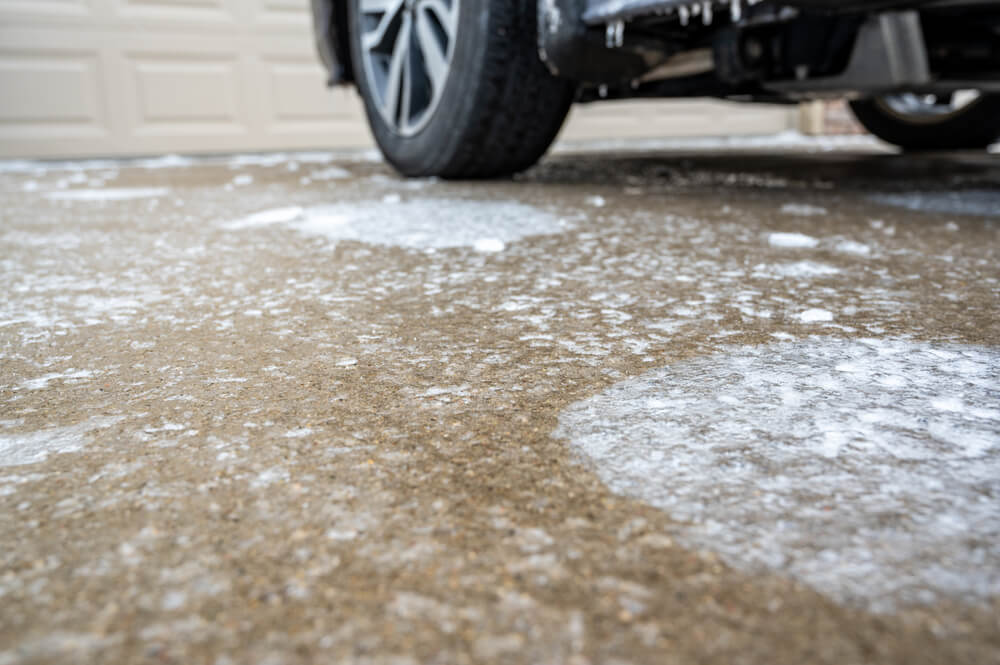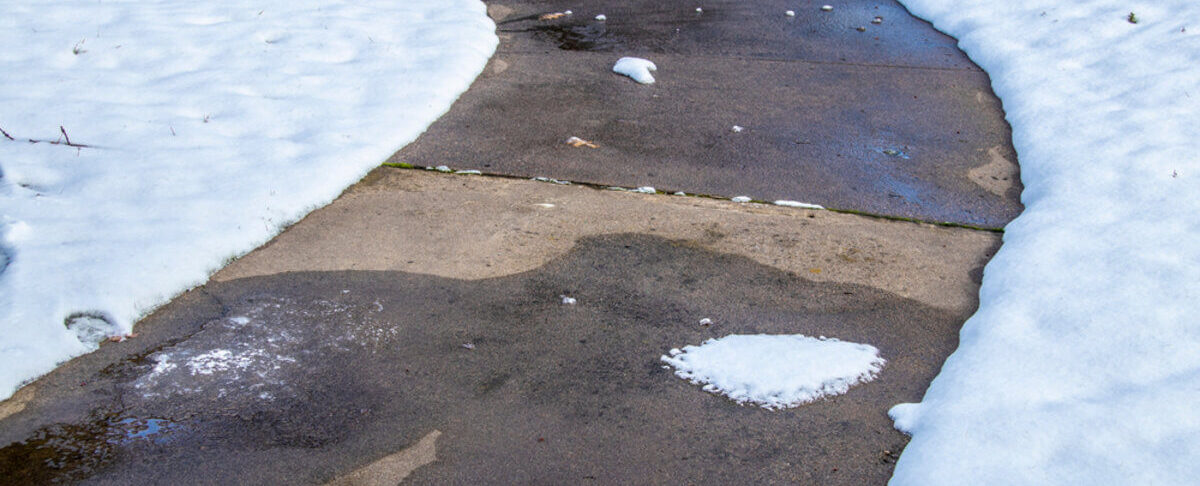Your driveway faces more challenges than you might realize. Each winter, as temperatures drop and rise again, a hidden process begins to take its toll. The freeze-thaw cycle—where water freezes, expands, and then melts—gradually weakens concrete, leading to cracks, scaling, and even potholes. Understanding this cycle and its effects is the first step in protecting your driveway and avoiding costly repairs. Let’s explore how this natural process impacts concrete and what you can do to keep your driveway in top condition.
What is the Freeze-Thaw Cycle?
The freeze-thaw cycle occurs when temperatures fluctuate around the freezing point of water. When water seeps into small cracks or pores in concrete and freezes, it expands by about 9%. This expansion creates pressure within the concrete, causing it to crack or spall (flaking of the surface layer). As the temperature warms, the ice melts, and the process repeats itself. Over time, this cycle can weaken concrete significantly, leading to structural damage.
Why Is Your Concrete Driveway at Risk?
Water Exposure and Absorption
Concrete is a porous material, meaning it naturally absorbs water from rain, snow, and ice. Your driveway, exposed to the elements, is particularly vulnerable. When this absorbed water freezes, the expansion can break apart the structure of the concrete at a microscopic level. Repeated cycles make the cracks larger and more visible.
Heavy Use Exacerbates Problems
Driveways experience constant stress from vehicles, foot traffic, and even de-icing chemicals. These external forces amplify the damage caused by the freeze-thaw cycle. Small surface cracks, which might seem harmless at first, grow larger under the strain of freezing water combined with heavy loads.
Common Signs of Freeze-Thaw Damage
Cracks in the Surface
One of the earliest and most visible signs of freeze-thaw damage is cracking. These cracks might start small but can quickly grow larger as water continues to infiltrate and freeze. Over time, this can lead to structural instability in your driveway.
Scaling or Spalling
Scaling, also known as spalling, happens when the surface of the concrete begins to flake or peel away. This not only affects the aesthetics of your driveway but also weakens its structural integrity.
Potholes and Uneven Surfaces
In severe cases, repeated freeze-thaw cycles can lead to potholes or uneven surfaces. These not only pose safety hazards but also require costly repairs if left untreated.
How to Protect Your Concrete Driveway From Freeze-Thaw Damage
1. Seal Your Driveway Regularly
One of the best ways to minimize freeze-thaw damage is to apply a high-quality sealant to your driveway. Sealants help reduce water absorption, making it harder for moisture to penetrate the concrete. Experts recommend sealing your driveway every 2–3 years for optimal protection.
2. Ensure Proper Drainage
Standing water is a major contributor to freeze-thaw damage. Make sure your driveway has proper drainage to prevent puddles from forming. If water consistently collects in certain areas, consider regrading the surface or installing drainage channels.
3. Address Cracks Immediately
Repairing small cracks as soon as they appear can prevent more significant damage down the line. Use a concrete patching compound to fill cracks and stop water from entering.
4. Avoid Harsh De-Icing Chemicals
While de-icing products are convenient, some contain chemicals that can weaken concrete. Opt for safer alternatives, such as sand or calcium magnesium acetate, which don’t cause as much harm.
When to Call a Professional
Although small maintenance tasks can help extend the life of your driveway, significant freeze-thaw damage requires professional repair. Contractors can assess the extent of the damage, recommend appropriate fixes, and even suggest preventive measures for the future.
Conclusion

Your concrete driveway is an essential part of your home, providing both functionality and curb appeal. However, the freeze-thaw cycle can quietly undermine its strength and durability. By understanding how this natural process affects concrete and taking proactive steps to protect your driveway, you can avoid costly repairs and keep it looking great for years to come. Pay attention to signs of wear, maintain a regular sealing schedule, and address issues early to ensure your driveway remains safe and reliable through every season. Contact Richfield Concrete today to learn more about protecting your driveway or to schedule a professional consultation.




